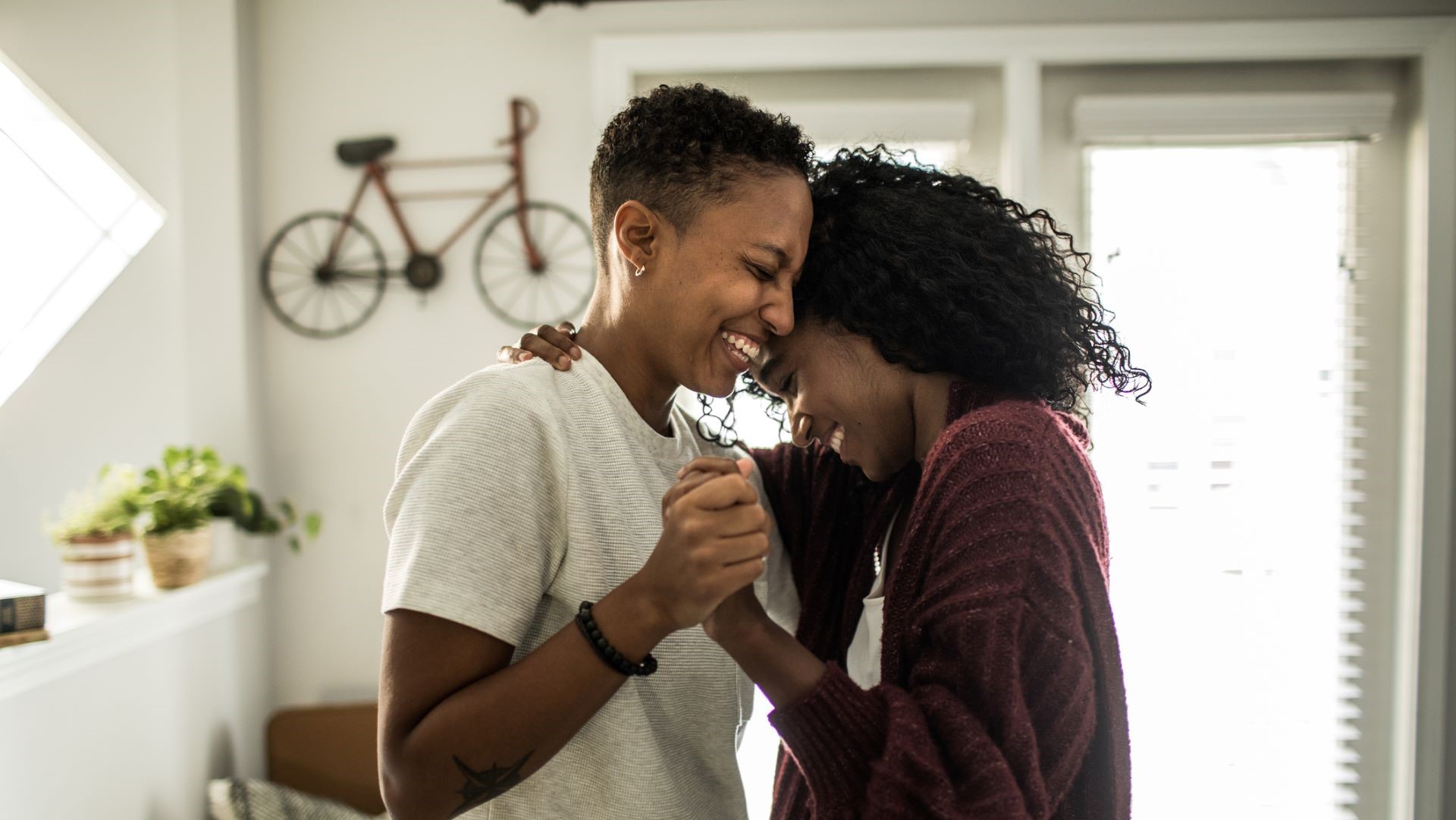
Are you thinking about exploring the benefits of an open marriage? While the practice isn’t mainstream, there’s a growing sense of interest in non-monogamous relationships, even amongst couples with kids.
Some people embark on open marriages because they’re not having enough sex in their own relationship, feel disconnected from their partner or simply want to spice things up in the bedroom. Others find it enriches their relationship with their main partner because they can fully explore intimacy with no boundaries.
If you’re thinking of opening up your marriage to more romantic and sexual liaisons, you’re not alone. While just 2 per cent of Brits aged 25 to 49 are currently in an open relationship, around 12 per cent of us are open to exploring the possibility, according to research by YouGov.
However, relationship psychotherapist and non-monogamy coach Paige Bond has a word of caution when it comes to telling your children. “Parents should be on the same page of how much information they want to tell their children and when to tell them.”
Below, we take a non-judgemental look at open marriage, including the pros and cons, and Bond’s top 6 questions to consider before opening up your relationship, especially if you have kids. Plus, where to go next if you’re still curious…
What is an open marriage?
An open marriage or relationship is an arrangement where you and your partner agree to allow romantic or sexual relationships or encounters with other people.
They’re more common than you think, and appear to be getting more popular. In 2022, the BBC reported a ‘growing interest’ in open relationships, with experts suggesting that the COVID pandemic persuaded many to pause and identify what they really wanted from their relationships.
Open marriages often get portrayed in exaggerated ways in movies and TV, making them seem more ill-fated or unstable than real-life open marriages tend to be. Often, the lines between an open marriage tend to be blurred with other forms of non-monogamy like swinging or having secret affairs.

In fact, a study conducted in 2020 for a psychology journal found that couples in open relationships were just as happy as those in monogamous relationships. As an added boost, they also experienced significant increases in sexual satisfaction.
So far, so great. But what happens when you throw kids into the mix? Do you keep it from them or try to be as open as possible? Writing for Psychology Today, polyamory author and expert Dr Elizabeth Sheff says the three most important ways to help kids understand (if you want them to) are:
- Be age-appropriate: Use language and provide information that is suitable for the child's age and level of understanding. Don't overwhelm young children with complex details.
- Be askable: Create an environment where children feel comfortable asking questions without judgement. Let them know no question is off-limits.
- Be matter-of-fact: Discuss other partners openly without shame or bashfulness. Use a relaxed, confident tone so it flows naturally into conversation. Avoid special emphasis that might make it seem abnormal.
There are practical issues you’ll have to consider, too. It might not just be the kids’ sleepovers you’re scheduling into the calendar if you and your partner are enjoying your newfound freedom. If you want to introduce a new partner into the family dynamic, that takes a lot of careful consideration and communication with everyone involved.
Of course, there are other ways you and your partner can explore having sexual or romantic encounters outside your marriage. These include:
- Swinging (recreational sex with other couples only);
- Engaging the services of sex workers, where it is legal to do so (the exchange of sexual services for money is currently legal in the UK, with the exception of Northern Ireland – and certain practices are prohibited);
- Sharing a partner between you.
Whatever you decide to do, take it slow and keep the lines of communication open. Set ground rules and boundaries so that neither of you feels insecure or threatened.
What are the benefits of an open marriage?
According to US relationship website The Couples Center, some potential benefits couples say they get from their open marriage include:
- Increased intimacy;
- More honesty and trust in each other;
- A sense of excitement and anticipation;
- Significantly more sexual fulfilment;
- Greater appreciation for each other;
- Less jealousy;
- Less pressure to fulfil each other’s needs.

What are the cons of an open marriage?
Not every relationship is built for the unique challenges of being romantically or sexually open. There are various pitfalls to having an open marriage, including:
- Increased jealousy, insecurity and anxiety;
- Higher risk of sexually transmitted diseases;
- A need to negotiate complex relationship rules;
- Judgement from friends, family or society;
- Practical implications, such as time management and finances.
What to do if you're curious about exploring an open marriage
If you're curious about opening up your marriage, proceed slowly and cautiously - this lifestyle isn't for everyone.
Start by reading books and articles to educate yourself on the different forms of ethical non-monogamy. Then, have open and honest conversations with your partner about any fantasies or desires to explore new relationships.

Relationship psychotherapist and non-monogamy coach Paige Bond suggests that you and your partner consider these questions before embarking on an open relationship:
- How might opening up our marriage impact our children, and how can we minimise any potential negative effects and maximise the positive ones?
- Have we considered the potential challenges our children may face, and how can we support them through this process?
- How prepared are we to address questions or concerns from our children regarding changes in our relationship?
- How will we manage our time to ensure that both our primary relationship and any additional connections receive adequate attention?
- Have we discussed how to handle scheduling and time commitments to maintain balance and fairness?
- What plans do we have in place for childcare during times when one partner may be on a date or spending time with another partner?
Sex and couples therapist Kaylee Rose Friedman agrees that kids throw more emotional and practical concerns into the mix.
“When it comes to couples with children, there is much to consider around how interconnected you'd like to be with future partners,” says Friedman.
“Some couples are interested in swinging and having sexual experiences only with others, while others would like to move into a more polyamorous space, having full romantic and committed relationships with multiple people.
"Knowing this might shape how you'd like to navigate what you share with the kids and when, what boundaries you might need, and give you a better idea of how to move forward.”
If you both feel you’re ready, there are plenty of sites and dating apps that are designed specifically for open relationships to slowly start testing the waters. Try openrelationship.com or polyamoryuk.co.uk to meet people of a similar mind or find out more about open relationships.
Check back in with each other frequently and keep communicating, and be prepared to stop if either of you feels unsure. The key is moving through this process together.
Get more relationship advice and tips, from how to fix your marriage while raising kids (without therapy) to how to make your relationship last, according to science. Plus, 6 phrases for de-escalating conflict in your relationship.







